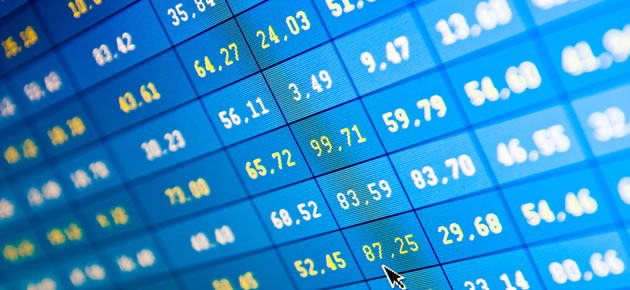The Euro (EUR) was little moved against the Pound (GBP) and US Dollar (USD) on Wednesday, despite the release of disappointing data out of the Eurozone’s top three economies.
Late in Tuesday’s session, the single currency slumped close to its lowest level of the year so far, after economists increased their bets that Wednesday’s data would show that confidence deteriorated in the Eurozone.
They were not disappointed.
First up was the publication of Consumer confidence data in Germany, the Eurozone’s largest economy. According to GFK’s forward looking confidence report, morale amongst German consumers declined for the first time in more than 1-1/2 years in September.
The market research group said that its consumer sentiment indicator dropped from August’s downwardly revised figure of 8.9 to 8.6 in September.
‘Major upheavals in the global economy have so far only affected the consumer mood in Germany to a very limited extent. In order to ensure that this remains the case for consumers in future, it is important that the crises regions do not escalate further and those long-term solutions be found instead. However, if domestic framework conditions also deteriorate decisively as a result of any potential further escalation, it is probable that more difficult times will also lie ahead for the German economy’ said GFK in its report.
Next up was more bad news out the region’s second largest economy, France.
Data published by the French Statistics office showed that confidence amongst the nation’s manufacturers declined sharply to a 13-month low in August, adding to concerns that the country is continuing to stagnate.
A manufacturing index dropped from July’s reading of 97 to 96 in August, the lowest figure seen since last year.
The personal production expectations index fell to -7 in August from 0 in July. General production expectations became more negative, with the corresponding index falling 1 point to -20.
Concerns are already high regarding the French economy after the government resigned on Monday plunging the country into political turmoil as the deeply unpopular President Francois Hollande tries to form a new government.
The run of bad news just kept on coming on Wednesday as Italy also reported a fall in consumer confidence.
The Eurozone’s third largest economy slid back into recession in the second quarter of the year. Italian consumers said that they were less optimistic about the health of the economy, their personal finances and future prospects.
The survey also showed that Italians expect unemployment to continue to rise and saw no pick-up in consumer prices.
Despite all of that, the Euro recovered slightly as investors embarked on a round of profit taking on the US Dollar.
Investors will now be looking to the end of the week for the latest unemployment data out of Germany, and sentiment data for the wider Eurozone region.
Friday sees the publication of the region’s latest inflation report, if it shows that inflation slowed yet again then the Euro is likely to fall further against its peers, as economists will likely raise their bets that the European Central Bank will introduce a quantitative easing programme at its next policy meeting.
Euro Exchange Rate News:
[table width=”100%” colwidth=”50|50|50|50|50″ colalign=”left|left|left|left|left”]
Currency, ,Currency,Rate ,
Euro, ,US Dollar,1.3183 ,
,US Dollar,1.3183 ,
Euro, ,British Pound,0.7986,
,British Pound,0.7986,
Euro, ,Australian Dollar,1.4207 ,
,Australian Dollar,1.4207 ,
Euro, ,Canadian Dollar,1.4482 ,
,Canadian Dollar,1.4482 ,
[/table]



